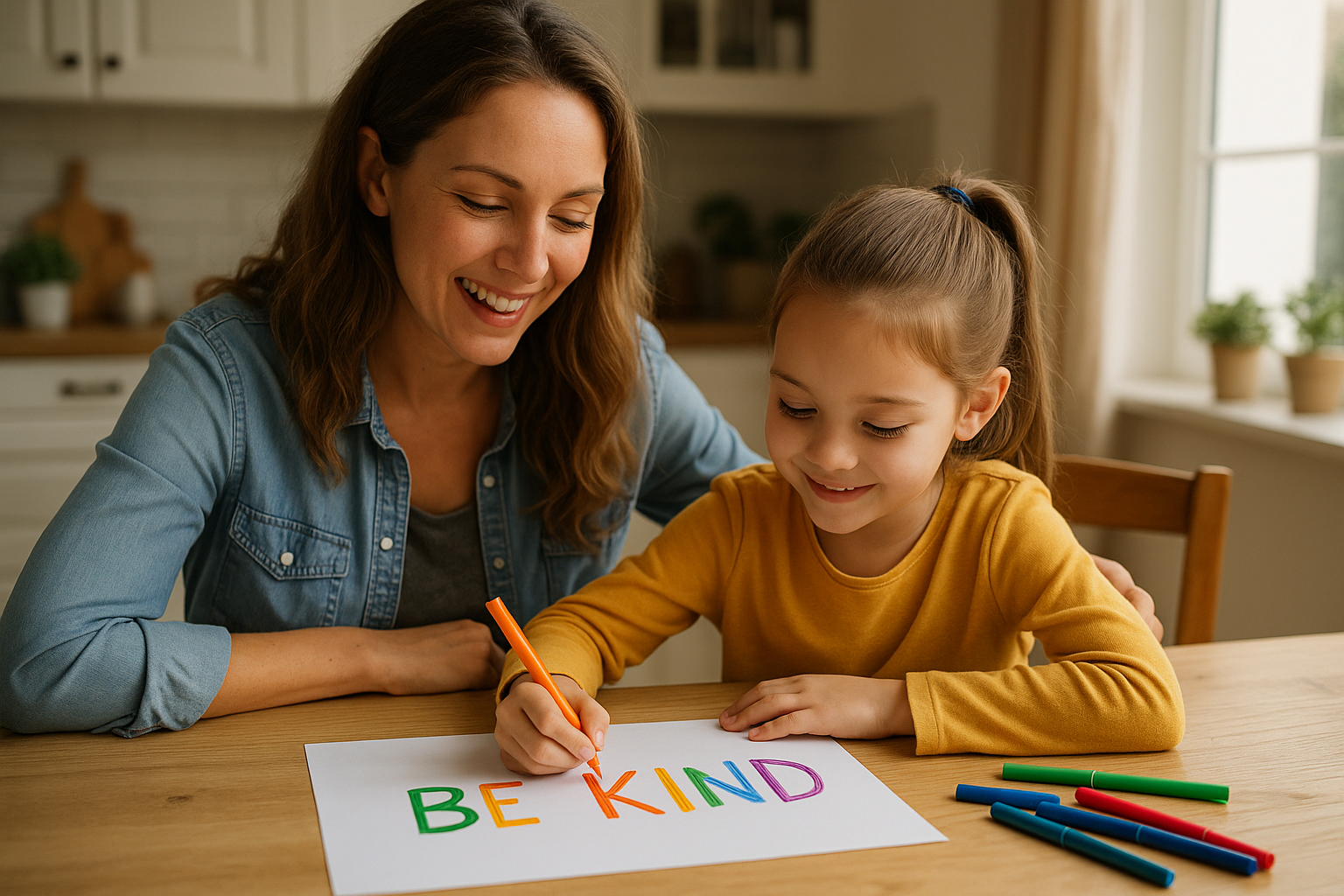Kindness doesn’t happen by chance — it’s learned, practiced, and reinforced every day. Teaching children to be kind isn’t just about telling them to “be nice.” It’s about showing them how to care, understand others, and take positive action. And the good news? Kids are naturally empathetic — they just need the right guidance to bring it out.
Here are practical, simple habits to help your child grow into a kind and compassionate human being.
1. Be a Daily Example of Kindness
Children are watching. They see how you treat the delivery driver, talk to neighbors, or handle frustration. When you speak respectfully, share generously, and apologize sincerely, your child learns to do the same.
Model kindness in your tone, your actions, and even your self-talk.
2. Use “Kindness Words” at Home
Create a culture of kindness in your household by encouraging polite and positive language. Words like “please,” “thank you,” “excuse me,” and “I’m sorry” should be used regularly and reinforced through praise.
Even simple compliments — “That was thoughtful of you!” — help kids recognize the value of kindness in everyday moments.
3. Encourage Empathy with Questions
Help your child understand how others feel by asking empathy-building questions:
- “How do you think she felt when that happened?”
- “What would you do if your friend was sad?”
- “Why do you think he was acting that way?”
These questions build emotional intelligence and train children to think beyond themselves.
4. Practice Gratitude Together
Gratitude nurtures kindness. Make it a habit to reflect on things you’re thankful for — during meals or at bedtime. Ask your child:
- “What made you smile today?”
- “Who helped you today?”
Recognizing goodness in their lives makes them more likely to share goodness with others.
5. Give Opportunities to Help
Children love feeling useful. Give them regular chances to help — at home, at school, or in the community.
- Let them feed the pet, water the plants, or pack snacks for a sibling.
- Involve them in acts of service like donating toys or making cards for neighbors.
Helping builds compassion and responsibility.
6. Set Up a “Kindness Challenge”
Make kindness fun with a weekly or monthly challenge:
- Smile at 3 people.
- Hold the door open for someone.
- Compliment a friend.
- Say something kind to yourself.
Track their progress on a chart and celebrate every act of kindness they complete.
7. Praise Kind Behavior — Not Just Performance
It’s easy to applaud grades or sports wins, but don’t forget to highlight kind behavior:
- “I noticed you helped your friend with her backpack — that was really thoughtful.”
- “You waited patiently — that shows kindness.”
This shows your child that kindness is just as important as achievement.
8. Correct Behavior with Compassion
When your child is unkind, it’s a teaching moment — not a time for harsh punishment. Ask:
- “What happened?”
- “How do you think that made them feel?”
- “What could we do differently next time?”
Then guide them to make amends. This teaches accountability and emotional growth.
9. Read Books and Watch Shows with Kind Messages
Storytelling is a powerful tool. Choose books and shows that model kindness, diversity, and empathy. Afterwards, discuss the characters’ actions:
- “Why do you think she helped him?”
- “What would you have done in that situation?”
These conversations plant seeds of compassion.
10. Make Kindness a Family Value
Create a family motto like “We treat others with respect” or “We show kindness every day.” Put it on the fridge. Talk about it regularly.
Kids thrive in environments where values are clear and consistently reinforced.
A Final Word: Small Acts, Big Hearts
Kindness doesn’t need to be grand or dramatic. It’s found in the small, everyday gestures — a smile, a helping hand, a gentle word. By nurturing kindness as a daily habit, you’re shaping a child who will grow into someone who uplifts others, respects differences, and spreads compassion wherever they go.
It’s not just about making the world a better place — it’s about raising a better person, one kind moment at a time.
